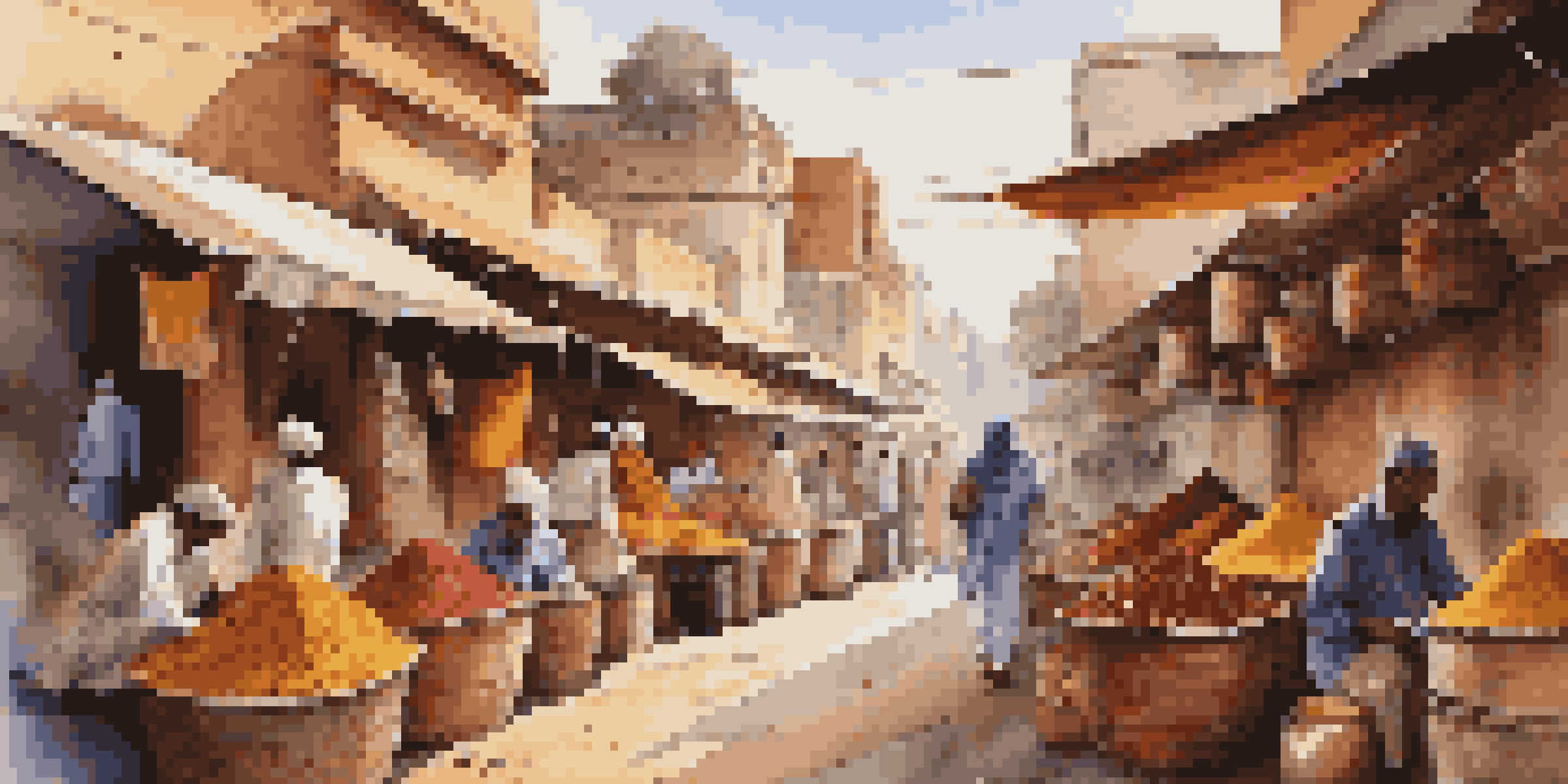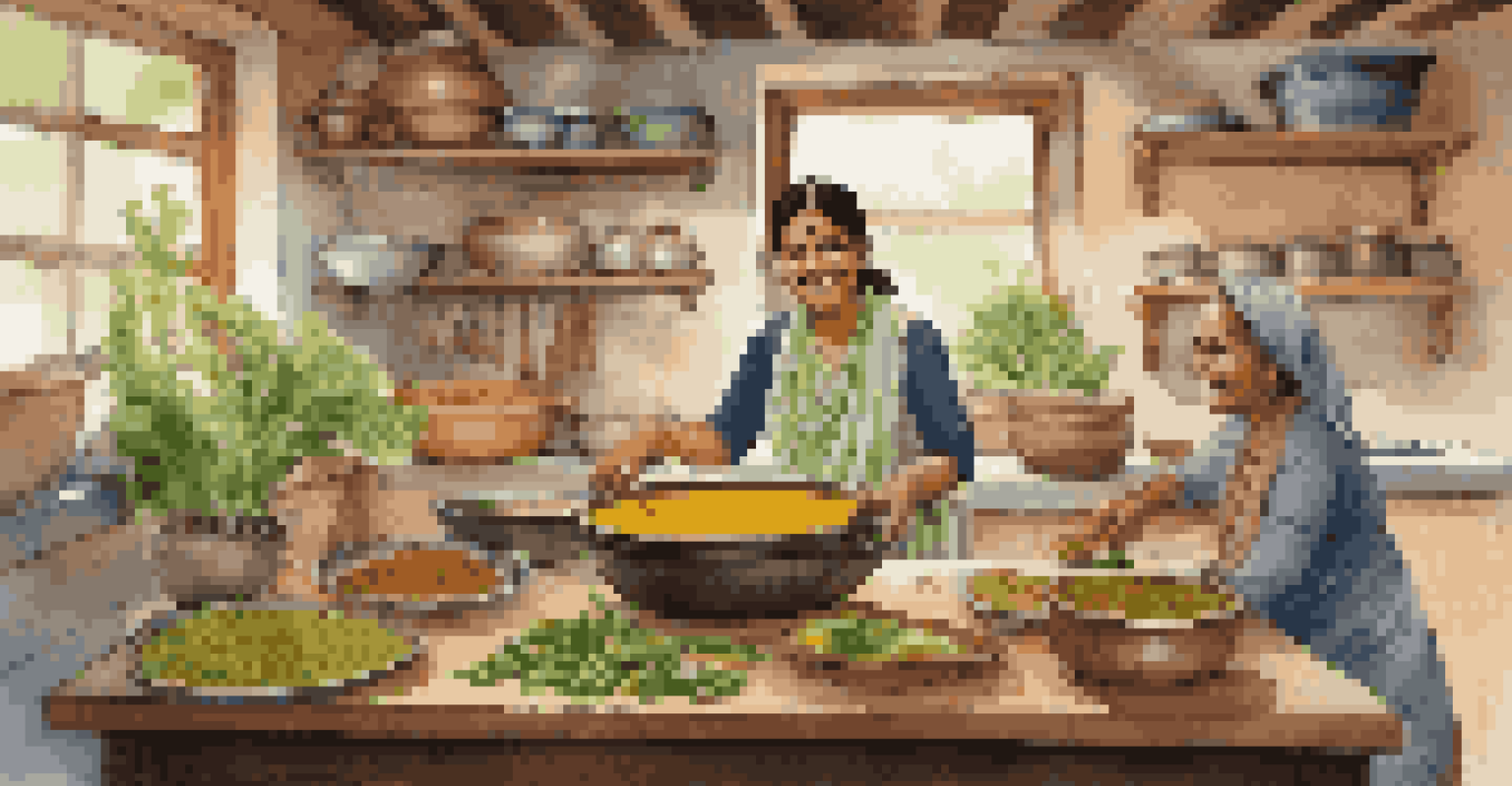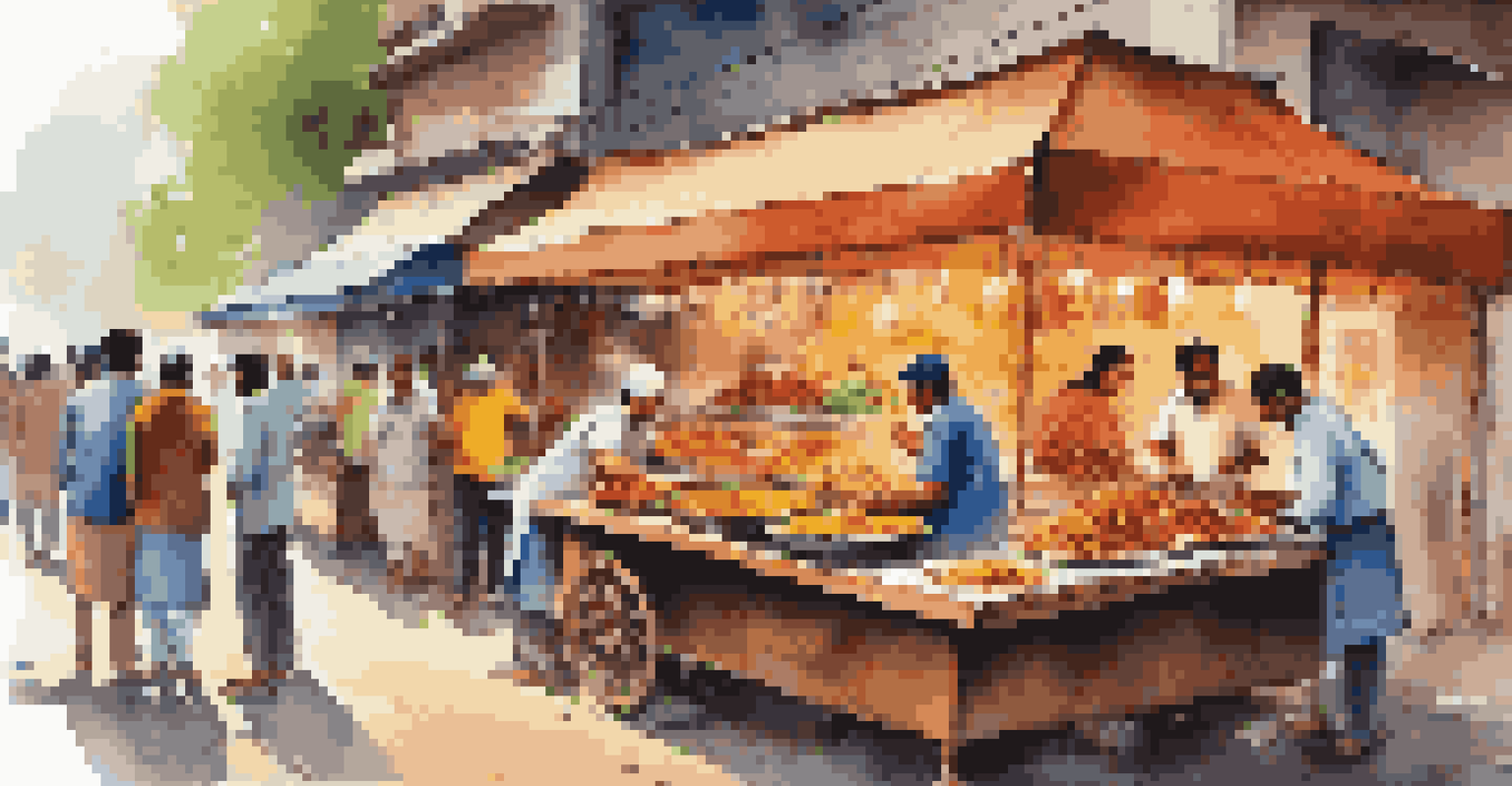The Spice Route: Culinary Tours in India

Introduction to India's Spice Route and Culinary Tours
India's Spice Route is not just a path on a map; it's a journey through flavors, cultures, and traditions. This route spans centuries, connecting the country’s diverse regions and their culinary delights. Culinary tours along this route offer a unique opportunity to explore the spices that have shaped Indian cuisine and its global influence.
Spices are the essence of Indian cuisine, each with its own story to tell.
From the fragrant hills of Kerala to the bustling markets of Rajasthan, each destination tells a story through its spices. Visitors can immerse themselves in cooking classes, spice market tours, and local tastings. This experience is perfect for food lovers and anyone intrigued by the art of cooking.
As you travel through India’s Spice Route, you’ll discover how spices are not just ingredients but also a reflection of history, trade, and culture. So buckle up for a flavorful adventure that tantalizes your taste buds and broadens your culinary horizons!
The Historical Significance of Spices in India
India has been a melting pot of cultures for centuries, and spices played a pivotal role in this blending. Historically, spices like black pepper, cardamom, and turmeric were so valuable that they were often referred to as 'black gold.' The lure of these spices attracted traders from around the world, influencing trade routes and cultural exchanges.

Not only were spices essential for flavoring food, but they also had medicinal properties, which made them highly sought after. Ancient texts from India mention the use of spices in both culinary and healing practices. This dual significance further enhances the allure of India’s Spice Route as you explore its rich heritage.
Explore India's Culinary Heritage
India's Spice Route offers a rich journey through flavors, cultures, and cooking traditions that shape its diverse cuisine.
Today, the legacy of these spices continues to thrive in Indian kitchens. Each spice carries a story of its journey and the people who cultivated it, making culinary tours a deep dive into history as much as they are into flavor.
Top Destinations for Culinary Tours in India
When planning a culinary tour along the Spice Route, several destinations stand out for their unique offerings. Kerala, known for its lush landscapes and backwaters, is famous for its coconut-based dishes and spices like pepper and cardamom. Here, you can enjoy a cooking class in a local home or take a spice plantation tour.
Food is not just what we eat; it's the essence of our culture and history.
Rajasthan, on the other hand, presents a different palette with its rich, robust flavors and vibrant street food scene. The bustling markets of Jaipur and Udaipur are perfect for sampling local delicacies, from spicy snacks to sweet treats. Each bite is a testament to the region’s rich culinary heritage.
Lastly, don’t miss the coastal state of Goa, where spices mingle with fresh seafood to create mouthwatering dishes. Whether you’re savoring a fish curry or indulging in a traditional feast, you’ll find that each destination has something special to offer, making your culinary journey unforgettable.
Engaging with Local Chefs and Home Cooks
One of the most enriching aspects of culinary tours is the opportunity to engage with local chefs and home cooks. These individuals often have generations of recipes and techniques passed down through their families. Learning from them allows you to connect with the culture on a personal level, understanding the 'why' behind each dish.
Imagine sitting in a cozy kitchen, surrounded by the aroma of spices, as a local chef shares their secrets for the perfect curry. This hands-on experience not only enhances your cooking skills but also builds lasting memories and friendships. Plus, you’ll leave with a deeper appreciation for the effort that goes into creating each meal.
Engage with Local Cooking Experts
Participating in cooking classes and interacting with local chefs allows travelers to connect personally with Indian culinary traditions.
These interactions also highlight the importance of local ingredients and sustainable practices in Indian cooking. By sourcing fresh produce and spices, you’ll gain insight into the culinary philosophy that values quality and tradition, enriching your overall tour experience.
Sampling Street Food: A Must-Do Experience
No culinary tour of India would be complete without indulging in its vibrant street food scene. Street food is more than just a quick bite; it's an explosion of flavors, textures, and colors that reflect the region's culture and culinary diversity. From spicy chaat in Delhi to crispy vada pav in Mumbai, each dish tells a story of its own.
Exploring street food markets is an adventure for your taste buds. As you navigate stalls filled with sizzling snacks and aromatic dishes, you'll discover foods that are both comforting and exciting. Don't hesitate to try something new; you might just find your new favorite dish!
Moreover, street food often incorporates local spices in unique ways, offering a different perspective on familiar flavors. This experience not only satisfies your hunger but also connects you with the heart of Indian culture, where food is a celebration of life and community.
Cooking Classes: Hands-On Learning Experiences
Participating in cooking classes during your culinary tour is a fantastic way to deepen your understanding of Indian cuisine. Whether you're a novice or a seasoned cook, these classes cater to all skill levels and offer a fun environment to learn. You’ll be guided by experienced chefs who share their passion for cooking and the stories behind each dish.
In these classes, you’ll typically start by visiting local markets to select fresh ingredients, learning about their importance in traditional recipes. Then, you’ll get hands-on experience preparing a variety of dishes, from fragrant biryanis to delicate sweets. This immersive learning process is not only educational but also extremely rewarding.
Experience Vibrant Street Food
Sampling street food is a must-do that showcases the explosion of flavors and cultural diversity found throughout India's culinary landscape.
By the end of the class, you’ll have a new collection of recipes to take home, along with the confidence to recreate authentic Indian dishes. Plus, you’ll leave with a deeper appreciation for the culinary traditions that make Indian cuisine so beloved around the world.
The Role of Spices in Indian Health and Wellness
Beyond their culinary uses, spices play a significant role in health and wellness in Indian culture. Many spices are known for their medicinal properties, often used in traditional practices like Ayurveda. For instance, turmeric is celebrated for its anti-inflammatory benefits, while ginger aids digestion.
On your culinary tour, you’ll not only learn how to use these spices in cooking but also discover their health benefits. Engaging with local healers or wellness experts can provide deeper insights into how these ingredients have been used for centuries to promote health and healing.

Understanding the connection between food and wellness will enrich your culinary experience, making it more than just about taste. It’s a holistic approach that highlights the importance of nourishing both body and spirit through the spices of India.